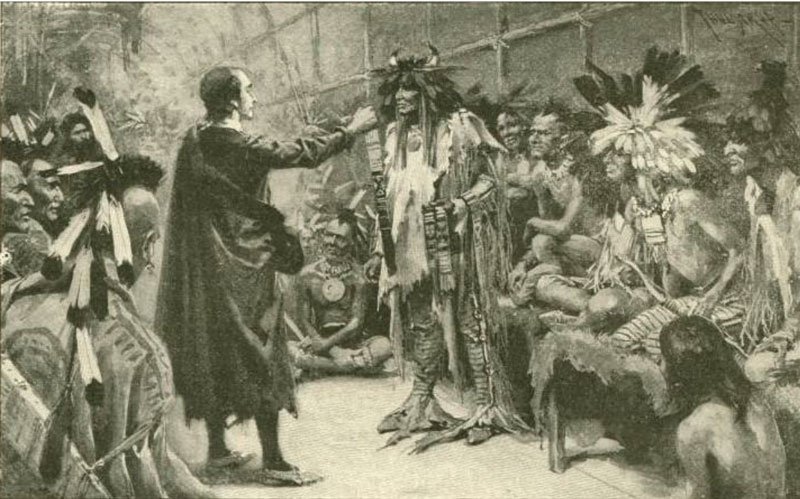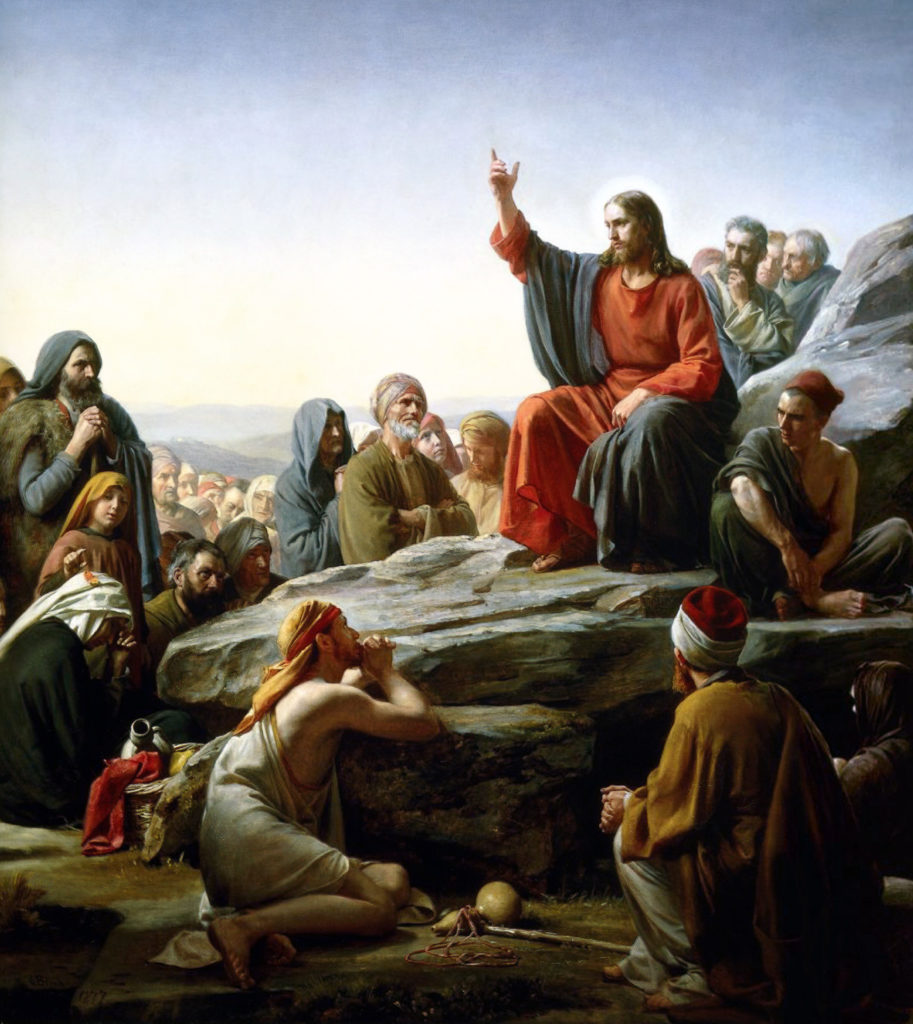Holy Week: Hey, Where You At? (Part 1)
We hear a lot today about the necessity of “meeting people where they are at” when it comes to evangelization of Christianity.
In one way, this is common sense and is certainly nothing new for the Church; even a casual glance of the missionary work throughout the centuries reveals painstaking efforts to understand the culture of the people being evangelized in order to determine how to best present the truths of the holy Faith.
It would have been absurd, for instance, for St. Francis Xavier to land in Japan and start reading pages from Aquinas to the natives. In the same vein, could you imagine St. Isaac Jogues standing on a tree stump delivering a theological discourse to the Hurons on the processions of the Three Persons of the Trinity? Of course not.

The job of the missionary was to first learn the environment, determine what was good in the culture and what was harmful, assess what the predominant moral faults were, and then figure out what were the best tools at his disposal to teach the eternal truths of the Faith and dispose the people to conversion and receive Baptism.
This process would usually take some time and have its share of frustrations, but their zeal for souls would have eternal rewards.
However, although the sentiment of “meeting people where they are at” is important, and this is something the so-called “new evangelization” pushes heavily, the fact that this has also been picked up and pushed heavily by the secular press reveals a few ulterior motives. On account of a greater accessibility to the Pope, and perhaps because of statements, writings, or actions that cause concern or confusion for the faithful, the popular media’s excitement over the Church “finally meeting people where they are at” amounts more to their concerted effort to create God in man’s image, undermine Church authority, and redefine Christianity.
What is being praised here by “meeting people where they are at” is not the same thing the missionaries were doing.
As far as the secular press is concerned, “meeting people where they are at” is the attempt to validate things contrary to Church teaching, ranging from the so-called equality of all religions, calling into question Christ’s claim to be God, and normalizing behavior contrary to the sixth and ninth Commandments, among other things.
Between poor catechesis over many decades and the relentless criticism of the Faith from the media, we seem to live in a climate – both inside and outside the Church – that considers adhering to Church doctrine as something that makes the Faith too “academic,” “narrow,” or “judgmental,” that such robs religion of vitality and dynamism, and puts limits on God.
After all (so it is thought), God is larger than any one religion, and it would be quite arrogant to assert that only one religion, in fact, is true. To put it another way, to insist on an unchanging doctrine and morality would be “fanatical,” and so it is high time to finally break away from this, for all these things pose significant obstacles to “meeting people where they are at.”
 The word “mercy” is then invoked as the buzz-word, for it would be considered “merciful” to remove such obstacles. In other words, Church teaching is unmerciful, exclusionary, it makes people feel bad and alienates them, it promotes a sense of guilt and shame, and the “merciful Jesus” who ate with publicans and sinners would never want that to happen.
The word “mercy” is then invoked as the buzz-word, for it would be considered “merciful” to remove such obstacles. In other words, Church teaching is unmerciful, exclusionary, it makes people feel bad and alienates them, it promotes a sense of guilt and shame, and the “merciful Jesus” who ate with publicans and sinners would never want that to happen.
Now at face value this can sound pretty convincing: who would want someone to feel beyond the reach of Christ? No one should, and they do not have to.
But the question is, what is Christ reaching for, and why? Tell a lie a thousand times and it becomes truth, and the hostility is being felt more and more by those who resist the lie. One of the more outstanding qualities of Christ is His approachability by all. Look at the Gospels: He received anyone, from the most unrefined and broken to the most learned, but He did so for a purpose and this is where the fatal flaw of that argument is exposed. In becoming Man, Christ is the Master of “getting people where they are at,” becoming like us in all things but sin (cf. Heb. 4:15).
“Meeting people where they are at” does not mean leaving them where they are.
Our Lord is always attentive to the audience before Him: in one place we see Him speaking parables to the unlearned to describe the kingdom of God; in another place, like with the blind beggar, He puts mud on the man’s eyes and simply tells him to go wash it off (from which he gains his sight); in still another instance, we see an entirely different approach with the Jews of the time, the Chosen People of the Covenant who awaited the fulfillment of God’s promise of a Messias, lots of high language that compels them to look at the evidence and make the right decision about Him.

Yet although the approach is different, Christ’s goal is always the same for everyone: acceptance of the truth about Him – that He is true God – recognizing His authority on earth, and the realization of what He came to give based upon that truth – salvation and eternal life, which demands conversion and change of heart.
In other words, in receiving any and all who came to Him, we see Christ to always be compassionate towards their misery – which is one part of mercy, a certain desire to suffer with someone – but never in such a way as to validate sin and compromise truth about Himself – which is the other part of mercy.
Recall how He tells the woman caught in adultery, after everyone drops their stones and walks away, to go, but to sin no more (Jn. 8:11); or the man He heals at the pool who suffered from some illness for thirty-eight years, to sin no more lest something worse would happen to him. (Jn. 5:14)
In this way do we understand that mercy is the completion of justice, not its abolition; justice respects what is due to someone, mercy is the tool that brings us around to that. Mercy involves patience and long-suffering, bending whenever it can, but not to the point of compromising what cannot be compromised.
If we think about it, God indeed stooped very low to become Man and would endure much on account of that (that is mercy), but never at the cost of losing His divinity (that is justice).
For our good, He would be insistent on this, lest we lose our way.
Because all the claims He makes, all the commands He gives, and the path He lays out for our salvation – which includes the establishment of Catholic Church, the authority He gives to her, and the means of grace He equips her with (and to none other) – are absolutely dependent upon this truth.
March 29, 2021








